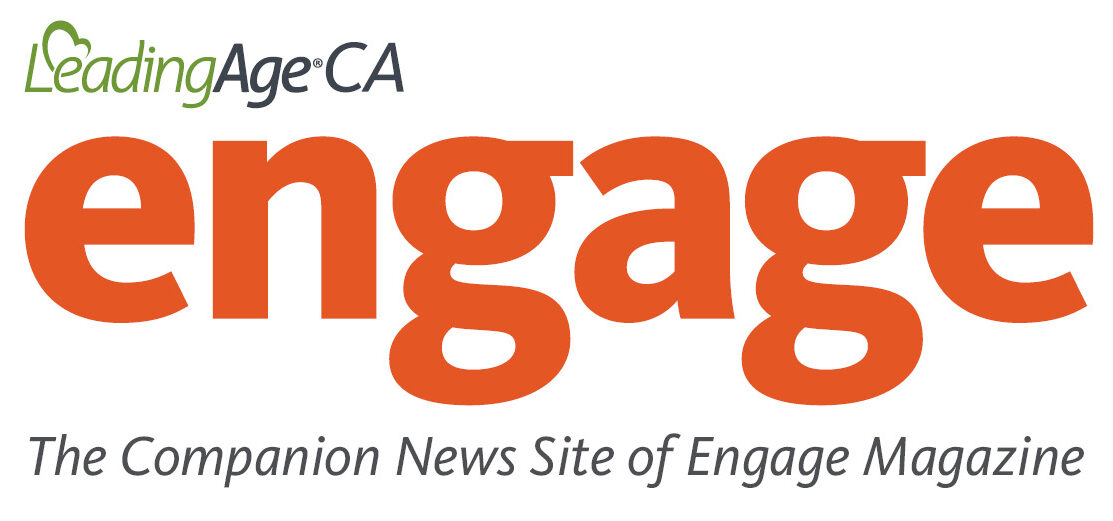from COVIA
When Governor Gavin Newsom’s stay at home order went into effect in March of 2020, no one knew what to expect. Just before those orders shut down its headquarters in Walnut Creek, Covia had established a COVID-19 Task Force to coordinate its response. Drawing from all business lines as well as key operational functions, including Human Resources, IT, and Clinical, the Task Force allowed Covia to share information that would help communities and individual employees respond to the pandemic.
The Task Force proved to be invaluable in supporting Covia’s front line staff in the arduous and ongoing task of keeping residents and employees as safe as possible. In employee surveys taken in July of 2020 and again in February 2021, 86 percent of Covia’s employees reported that Covia “is a physically safe place to work.” As of February, 88 percent of Covia’s employees agreed that “I am confident in Covia’s response to COVID-19 over the past year.”
Reflecting on this COVID-19 year provides potential lessons for responding, not just in a crisis, but on an ongoing basis. Here are some things Covia’s COVID-19 Task Force learned over the past year.
POOL RESOURCES: Before the pandemic, each Covia community would purchase its own Personal Protective Equipment (PPE) based on local needs. Early on, when supplies were scarce and expensive, Covia used collective purchasing so that communities didn’t need to scramble or compete against one another. Supplies were stockpiled in one location and disbursed on an as-needed basis.
Physical items are not the only resource. Pooling information and expertise also proved invaluable. “When there is a disaster or emergency, it helps to have a few people with specific tasks that relate to managing the response – so everyone else can still focus on doing their jobs instead of having to research best practices and figure out what they have to do differently,” says Grant Edelstone, Covia’s Senior Director of Risk Management. Edelstone was Covia’s subject matter expert for regulatory changes, providing updates to communities on how new Provider Information Notices (PINs) and All Facilities Letters (AFLs) affected day-to-day practices.
BE FLEXIBLE: The pandemic required significant changes in daily activities, both on an individual and on a communal level. “At the beginning, the pandemic had a large impact on my daily work,” says Prab Brinton, Vice President of Human Resources. “Every morning began with reviewing the latest changes impacting employees and every evening ended with how many of our employees were affected by COVID-19. It also stretched us in how we could best support our employees and the hardships they were facing.” Recognizing the reality of the situation and responding to that reality helped to provide the best possible outcome under the circumstances.
Being flexible also requires thinking about what might happen and preparing accordingly. Covia had never had a work-from-home option for employees in Support Services, its administrative offices. However, recognizing that change was likely, the IT department laid the groundwork for a successful transition to working remotely. When it became clear the office would not reopen soon, Covia asked employees what would allow them to continue to be successful. Based on employee feedback, Covia delivered employees’ ergonomic desk chairs to their homes.
COLLECT AND RESPOND TO FEEDBACK: Along with the survey for Support Services employees, Covia created a survey for all employees in April 2020 to determine what would best support them. As a result, Covia implemented the Employee Essential Support program. This program included financial support to help with unexpected costs, time off, choice of a fun “family time” membership, and merit increases.
Covia also set up an email address to allow anyone to write to the Task Force with their questions or concerns. This inbox ensured that there would be two-way communication with a quick response to immediate problems.
“Even with the best intentions, unless we hear from the people most affected, we will only be guessing how we can support them,” says Laura Darling, Vice President of Communications and Spiritual Care. “Keeping the lines of communication open is vital.”
SHARE INFORMATION: As time-consuming as it has been to hold regular meetings of nine people for over a year, the coordination of information across Covia has been a key element of its response – and a tool that its members value. The interdepartmental response has allowed Covia to respond to issues in a coordinated manner as they arose. “Just knowing that I had team members I could count on, bounce ideas off of, and a team that could provide some comic relief at the moment I just wanted to give up, kept me going,” says Brinton.
At the same time, the Task Force provided consistent information to all of Covia through weekly written updates, as well as informational memos for employees in both English and Spanish. “Being credible, expressing empathy, promoting action, and showing respect is all-important in any disaster, even one that lasts a year or more,” says Edelstone. “This last year has changed the nature of how we value, interact and communicate with residents and employees.”
With vaccinations under way, there is hope that we will soon see the end of this pandemic. But the lessons learned can still serve each of us as we support our residents and employees in the years to come.
To learn more about Covia, visit https://covia.org




